Screening
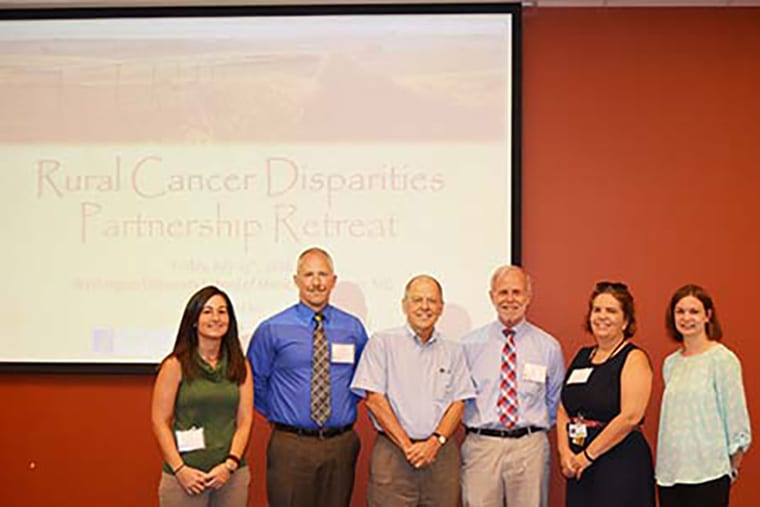
Addressing Rural Cancer Health Disparities: SCC-SIUSM Partnership
Faculty involved: Graham Colditz, Aimee James, Erin Linnenbringer, Mary Politi, Siobhan Sutcliffe
The partnership between The Southern Illinois University School of Medicine and Siteman Cancer Center investigates rural cancer disparities and ways to help educate, train, and implement effective strategies to reduce the disparities seen in rural communities.
Chronic Diseases Related to Obesity
Faculty involved: Su-Hsin Chang, Graham Colditz
The project will study obesity, the coexistence of obesity-related chronic diseases, and mortality in the United States in terms of life expectancy and lifetime healthcare.
Community Engagement in Research
Faculty involved: Mary Politi, Bettina Drake, Esther Lu, Aimee James, Jean Hunleth, Erika Waters, PhD, MPH, Vetta Sanders Thompson, Graham Colditz
This line of research strives to engage all members of the community throughout the research process to help navigate the healthcare process.

Community Outreach: Mobile Mammography Van
Faculty involved: Bettina Drake, Graham Colditz, Su-Hsin Chang
This project worked towards increasing and providing effective mammography screening for women in the St. Louis area.
Disparities in Adherence to Adjuvant Therapy for DCIS and Outcomes
Faculty involved: Ying Liu
Ying Liu, MD, PhD, assistant professor of surgery, has received a three-year, research scholar grant from the American Cancer Society to study disparities associated wtih ductal carcinoma in situ (DCIS).
Disparities in Young-Onset Colorectal Cancer Survival
Faculty involved: Yin Cao
Dr. Yin Cao received a Young Investigator Award from the National Comprehensive Cancer Network. This two-year award will support Dr. Cao in her work addressing colorectal cancer survival disparities among patients diagnosed under age 50 through integrating patients, treatment, and tumor molecular characteristics.
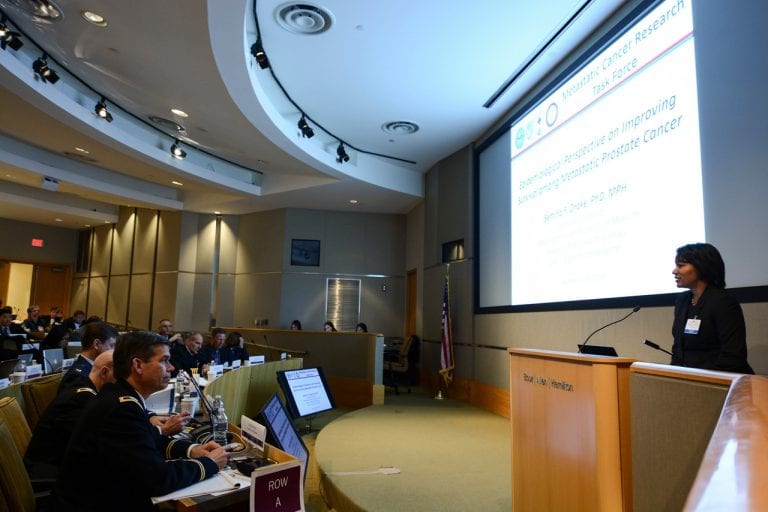
Effect of Diabetes & Obesity on Disparities in Prostate Cancer Outcomes
Faculty involved: Bettina Drake
In this Department of Defense project, Dr. Drake and colleagues utilize a prostate cancer cohort from the VA hospitals to explore the association between obesity and prostate cancer recurrence, and its outcome on patient health.
Etiology of Young-Onset Colorectal Cancer
Faculty involved: Yin Cao
About 11% of colon cancers (CRC) and 18% of rectal cancers occur in adults younger than 50 years. In contrast to the recent population decline in CRC incidence in adults aged 50 and above, CRC incidence has increased in all 5-year age groups between 20 and 49 years. The majority of young-onset CRCs are diagnosed symptomatically with more advanced tumors. Dr. Cao is leading research to discover the genomic landscape of young-onset CRCs and the underlying lifestyle factors that may drive the rising incidence.
Improving Rural Colon Cancer Screening
Faculty involved: Aimee James, Esther Lu, Graham Colditz, Jean Hunleth
This project will address colorectal cancer mortality rates in rural Southern Illinois by improving the screening process and follow-up for patients who have a positive fecal blood test (FOBT, FIT).
Program Evaluation of Community Engagement
Faculty involved: Aimee James, Graham Colditz, Vetta Sanders Thompson, Bettina Drake, Esther Lu, Jean Hunleth
Community-based participatory research (CBPR) helps give community members voice in academic research. These projects evaluated current and past CBPR projects to discovery future best practices.
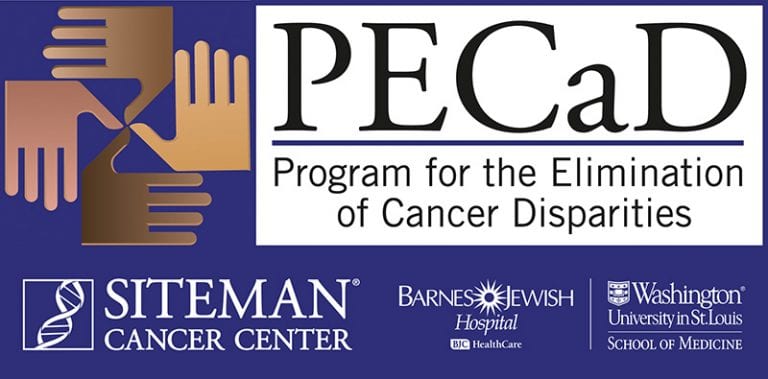
Program for the Elimination of Cancer Disparities (PECaD)
Faculty involved: Graham Colditz, Aimee James, Bettina Drake, Vetta Sanders Thompson
The mission of Siteman Cancer Center’s Program for the Elimination of Cancer Disparities (PECaD) is to create a national model for eliminating local and regional disparities in cancer education, prevention and treatment. Through a community advisory committee and community partnerships, PECaD works with community representatives to find solutions that reduce disparities.
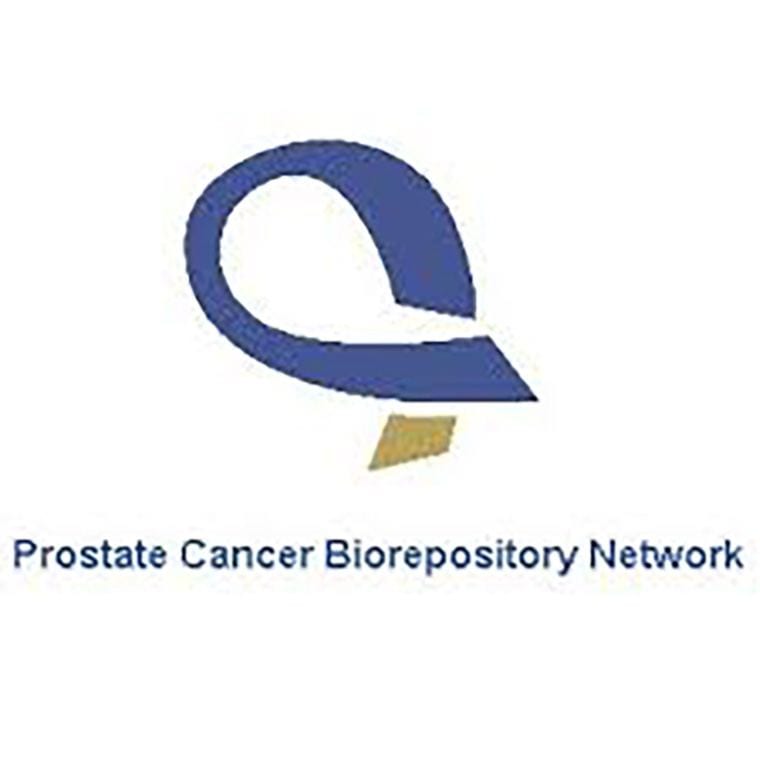
Prostate Cancer Biorepository Network
Faculty involved: Bettina Drake
The Prostate Cancer Biorepository Network (PCBN) is a Department of Defense (DOD)/ Congressionally Directed Medical Research Program (CDMRP) bioresource that provides tissue and other biospecimens to all prostate cancer investigators.
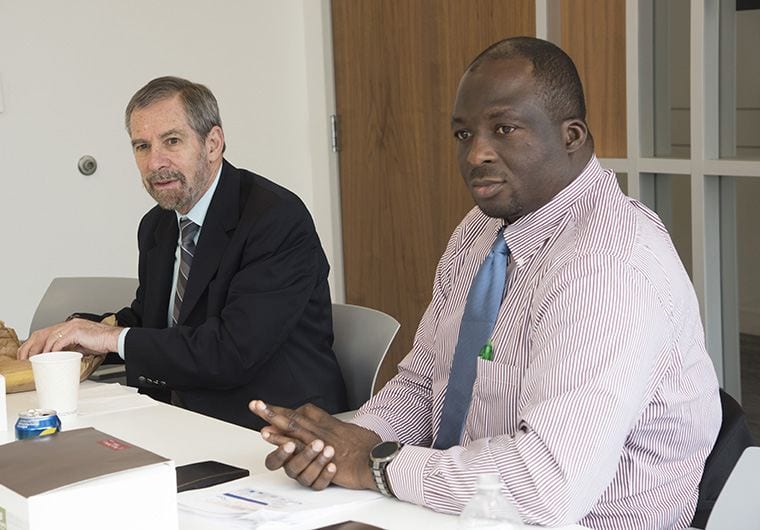
RANK Pathway and Mammographic Breast Density
Faculty involved: Adetunji Toriola, Graham Colditz, Rosy Luo
A very dense breast on mammogram is one of the strongest risk factors for breast cancer, and many women in the United States have extremely dense breasts. There is, however, very limited knowledge on how to modify breast density to reduce breast cancer risk

Siteman Biostatistics Shared Resource
Faculty involved: Feng Gao, Esther Lu, Rosy Luo, Graham Colditz, Siobhan Sutcliffe, Yan Yan
The Siteman Biostatistics Shared Resource (SBSR) facility is a shared resource core supporting consultation on biostatistics and epidemiology. The facility supports cancer research through experimental designs, study monitoring and data analyses.
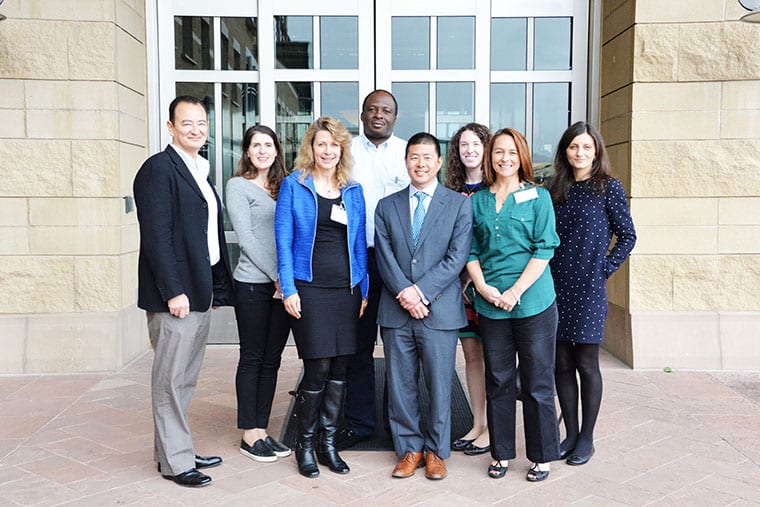
The ColoCare Study
Faculty involved: Adetunji Toriola, Graham Colditz
The ColoCare Study follows a cohort of men and women who have been newly diagnosed with colorectal cancer (stages I-IV). This project's main interest is in quality-of-life and in rates of cancer recurrence and death.

Your Disease Risk
Faculty involved: Graham Colditz, Erika Waters, PhD, MPH, Adetunji Toriola, Bettina Drake, Siobhan Sutcliffe, Yikyung Park
Personalized health assessment tool that allows people to see their risk for common chronic conditions, such as diabetes, heart disease, stroke, and cancer risk.